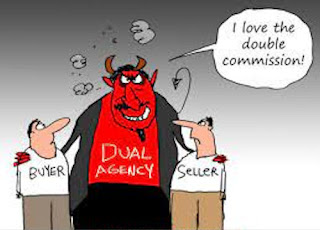See Also: Double Dipping should be Illegal in Ontario
Double Dipping refers to a practice where a real estate broker or agent collects a commission or fee from both the buyer and the seller in a real estate transaction. This means that the broker represents both parties in the transaction and receives compensation from both sides. However, double dipping is considered unethical and may be illegal in many jurisdictions due to several reasons:
Conflict of Interest: Double dipping creates a significant conflict of interest for the broker. By representing both the buyer and the seller, the broker's loyalty and fiduciary duty to either party may be compromised. They may prioritize their own financial interests over the best interests of their clients, leading to potential unfairness or biased advice during the transaction.
Duty of Loyalty: Real estate brokers have a duty of loyalty to their clients, which means they are obligated to act in their clients' best interests. When a broker double dips, it becomes challenging to fulfill this duty since their financial interest is tied to both parties. This can erode trust and may lead to a breach of the broker's fiduciary duty.
Transparency and Fairness: Double dipping can undermine transparency and fairness in real estate transactions. When a broker receives compensation from both the buyer and the seller, it may not be clear to the parties involved how their interests are being represented. This lack of transparency can create doubts and suspicions regarding the broker's motivations and may hinder fair negotiations.
Consumer Protection: In many jurisdictions, real estate regulations and laws aim to protect consumers and ensure fair practices in the industry. Prohibiting double dipping helps safeguard the interests of buyers and sellers by promoting fair and unbiased representation. It ensures that brokers act in a manner that is transparent, accountable, and solely focused on serving their clients' best interests.
Professional Standards: Real estate associations and professional organizations often have codes of conduct or ethical guidelines that prohibit double dipping. These standards are in place to maintain the integrity of the profession and uphold ethical practices. Brokers who engage in double dipping may face disciplinary actions, including license revocation or suspension.
While the specific regulations and laws regarding double dipping may vary between jurisdictions, the underlying principles remain consistent: to ensure fair and transparent representation for both buyers and sellers, protect consumers, and maintain the integrity of the real estate industry.

No comments:
Post a Comment
Comments containing links will be marked as spam and not approved. We moderate every comment.